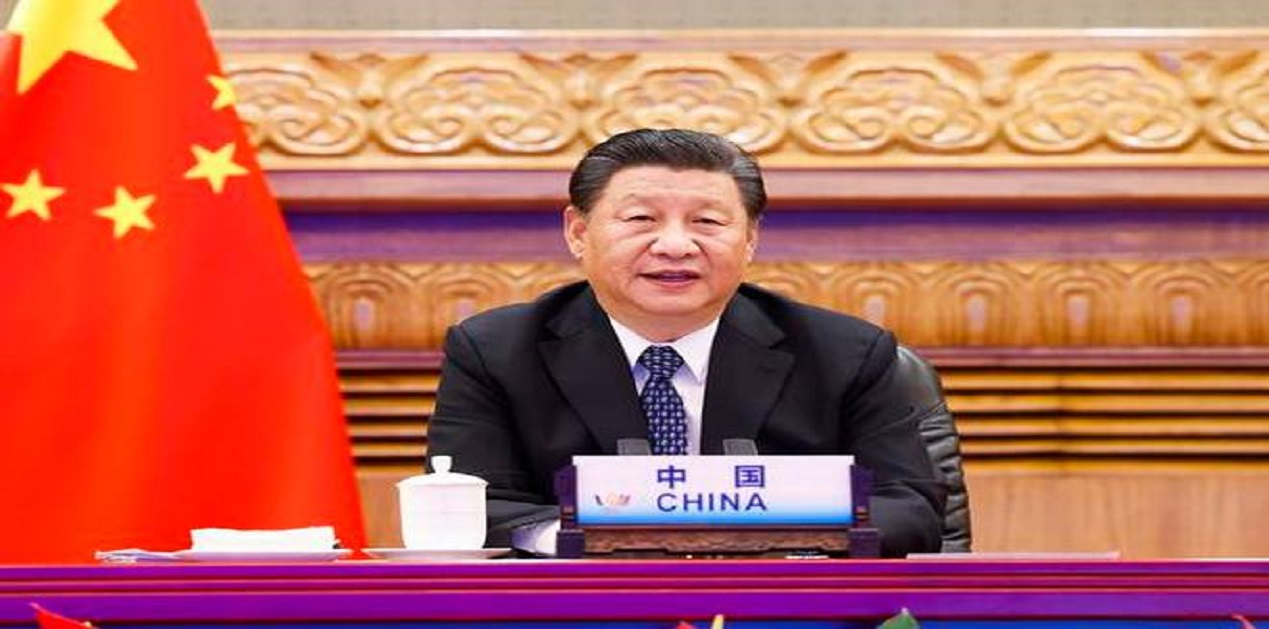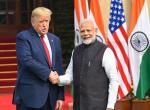‘Common Prosperity’ has become the new buzzword in the People's Republic of China since August 2021. The term provokes varying emotions ranging from fear and apprehension to a sense that the government is finally addressing the rising Gini coefficient and reining in the private entrepreneurs who have become multi-billionaires. Chinese President Xi Jinping, who mentioned common prosperity in a speech on August 17, definitely had in mind the steadily widening income disparities, the growing urban-rural income divide and the concentration of enormous wealth in the hands of just a small handful of people. While his announcement will have been welcomed by ordinary Chinese people, Chinese Communist Party (CCP) cadres particularly will wait to see the details of the policy and whether it heralds a return to the harsh and devastating Cultural Revolution decade.
The international business magazine Forbes, in September disclosed that mainland China has 626 dollar-billionaires, the second-highest number in the world and that in 2020, the wealthiest 1 per cent of people held 30.6 per cent of the country’s wealth, an increase of ten percent from ten years ago. Official Chinese statistics also reveal that China’s Gini coefficient (a measure of inequality that ranges from 0 to 1) has reached 0.47. This inequality is accentuated by the rising cost of living and urban real estate and the 9 AM to 9 PM six days a week work culture which has triggered the social phenomenon of tang ping, or “lying flat” among China’s graduate youths. These youth say they are giving up on life as there is little point in striving for better opportunities which are out of reach. Communist Party officials, however, are worried about its deleterious effects on society, the country’s labour force and manufacturing capacity, and the additional strain it will impose on the already burdened state exchequer.
Though announced by Xi Jinping as part of efforts to strengthen his position before the upcoming 20th Party Congress scheduled for late next year, the “common prosperity” initiative has triggered opposition including from leading Chinese economists. People’s University Vice President Liu Yuanchun spoke about the need to stabilize market expectations and warned that the new regulatory measures would lead to volatile market sentiment not conducive to economic development. Zhang Weiying, an Economics Professor at Peking University, said the slogan of “common prosperity” indicates loss of faith in the market and that “introducing more and more market interventions, will only lead China toward common poverty.” Li Daokui, a former adviser to the People’s Bank of China was quoted by Nikkei Asia (September 29) as saying "We must be vigilant against common prosperity becoming a Great Leap Forward or something that blights development."
Meanwhile, the initiative has sparked apparent vigorous debate within the CCP. One example of its fallout is the proposal for a national property tax, under discussion since 2003. Wanting to reduce speculation, lower prices, and make life easier for middle-class families, Xi Jinping backed the proposal with his remark “Housing is for living, not for speculation”. Politburo Standing Committee member and Vice Premier Han Zheng was tasked with steering a pilot rollout of the tax. On October 23, China’s NPC Standing Committee (NPCSC) adopted a decision authorizing the State Council to carry out property tax pilots in selected, as yet unspecified, regions, for at least five years. Based on negative feedback, Vice Premier Han Zheng scaled back plans for the pilot from 30 to only 10 cities although earlier plans approved by Xi Jinping had called for its introduction in 30 cities.
Meanwhile a concern that ‘common prosperity’ could be a prelude to return of the days of the Cultural Revolution has aroused apprehension and discussion within the Chinese Communist Party (CCP). “Ultra-Leftists” and others, including supporters of Xi Jinping like Hu Xijin, the nationalist Editor-in-Chief of Global Times, are discussing ‘common prosperity’. The crackdown against prominent Chinese billionaire private entrepreneurs has not helped.
Li Guangman, a former Editor-in-Chief of the Central China Electric Power News, which was closed in 2013, posted an article on August 28 on WeChat where he lauded the announcement of “common prosperity”. He said a “profound transformation” was underway in China and that "This transformation will wipe away all the dust." Indicating that the article had official approval, it was promptly picked up by other official newspapers including the CCP’s official People’s Daily. On October 9, Li Guangman posted another article on his WeChat account where he again asserted that a “profound transformation” is underway, but this time added “It’s changing our society, thoughts, concepts and lives and it will not be stopped by the will of some people or groups with vested interests.” He railed against private businesses investing in and controlling the media and listed two examples to substantiate how politics, business, culture and the media could be affected. He urged tougher policies against “unregulated” capitalism, “effeminate male pop stars” etc.
Hu Xijin responded to Li Guangman’s with a warning against creating "confusion and panic." A number of articles authored by academics justifying “common prosperity” have been published over the past month in the Guangming Daily, People’s Daily and other national newspapers.
On September 19, Cai Fang a former Vice-President and Professor at the Chinese Academy of Social Sciences explained that the concept of “common prosperity” is not new in Chinese politics and is compatible with the reform policies. It had, he said, appeared when former Chinese leader Deng Xiaoping initiated economic reforms in the late 1970s, and again at the 14th Party Congress in 1992, which declared that the aim was “to build a socialist market economy”. The 18th and 19th CCP Central Committees under the leadership of President Xi Jinping included the term in all major Party and Government policy documents. Cai Fang argued there is consensus that the Chinese people had benefitted from the reform and opening, but said that despite growing prosperity income inequality had widened. He pointed out that in 2019, the rural–urban income ratio and Gini coefficient was 2.325 and 0.465, respectively, which was “hardly satisfactory”. He said the leadership’s reiteration of common prosperity as a principal policy goal, therefore, comes at the right time. He identified three reasons for the goal of common prosperity: (i) it is a logical continuation of the long-term task of eliminating poverty and pushing the low-income to the middle-income group, building a welfare society by 2020 and building a modern socialist country by 2049;(ii) it is the key to “growing the pie” and a “skilful response” to alleviating discontent caused by income inequality, social immobility and low-wages of workers, youth and the less-educated groups; and (iii) using redistribution tools along with charity and social responsibility will strengthen the level of social welfare and social protection andinequality will be reduced as common prosperity is realised.
At the China International Digital Economy Exposition in Shijiazhuang, Hebei Province on September 6, 2021, Vice Premier Liu He, who is among Xi Jinping’s closest confidants and the principal economic adviser, also sought to assure China’s private sector. He said, “China’s policy of supporting the development of the private economy remains unchanged. There is no change now, and there will be no change in the future.”
Xi Jinping personally sought to address and allay these concerns and explain that the intention is not to bring about “common poverty”. The CCP's leading theoretical fortnightly Qiu Shi (October 15) published an article by Xi Jinping captioned 'Solidly promoting common prosperity', which contained remarks on common prosperity made by him in speeches in 2021. Xi Jinping stressed that the Party realises that poverty is not socialism and had broken traditional institutional constraints to allow some people and some regions to get rich first. He said since the 18th Party Congress, the Party Central Committee has "put the gradual realization of common prosperity for all people on a more important position” and is promoting coordinated regional development to create “good conditions for promoting common prosperity". Emphasising that there are acute problems of unbalanced and inadequate development with “a large gap between urban and rural regional development and income distribution", Xi Jinping said China “must resolutely prevent polarization, promote common wealth, and achieve social harmony and stability". He declared "Common prosperity is the essential requirement of socialism and an important feature of Chinese-style modernization” and that this is the goal for the middle of this century.
Chinese President Xi Jinping’s remarks on “common prosperity”, which were intended to consolidate his position in the run up to the upcoming 20th Party Congress late next year, appears to have instead provoked robust inner-Party debate. This has spilled out into China’s official media and brought to the surface the discontent among academics, economists and CCP cadres with Xi Jinping and his policies. Apprehension of a swing back to the days of the Cultural Revolution were articulated during the 19th Party Congress in 2017, when Xi Jinping abolished the term limits for the position of President of China and senior cadres especially voiced fears of a return to the one-man rule of Mao. These apprehensions have resurfaced. While Xi Jinping still appears to have a firm grip on the CCP, it is clear that sections of the Party are discontented and this introduces a degree of political uncertainty until the Party Congress late next year.
(The paper is the author’s individual scholastic articulation. The author certifies that the article/paper is original in content, unpublished and it has not been submitted for publication/web upload elsewhere, and that the facts and figures quoted are duly referenced, as needed, and are believed to be correct). (The paper does not necessarily represent the organisational stance... More >>
Image Source: https://th.thgim.com/news/international/13qoqy/article37024485.ece/ALTERNATES/FREE_660/XiJinping











Post new comment